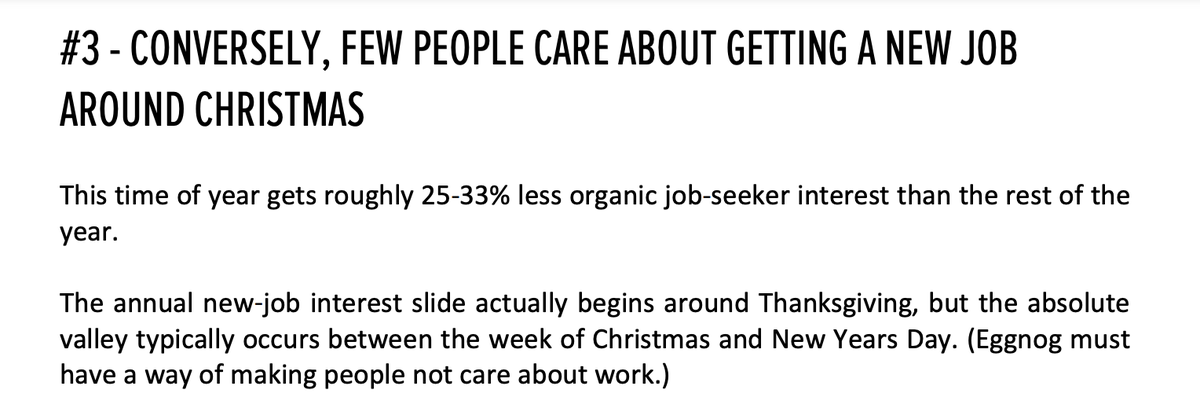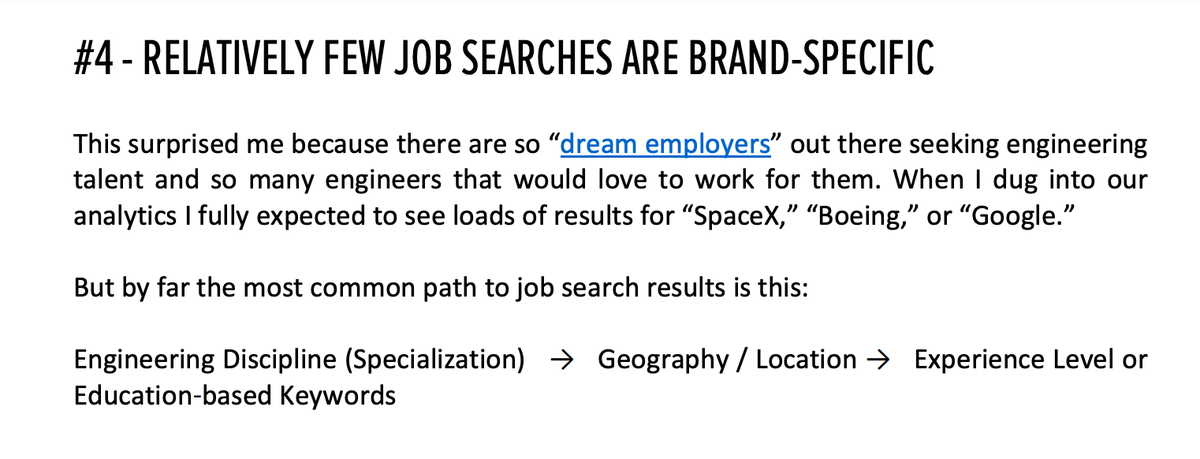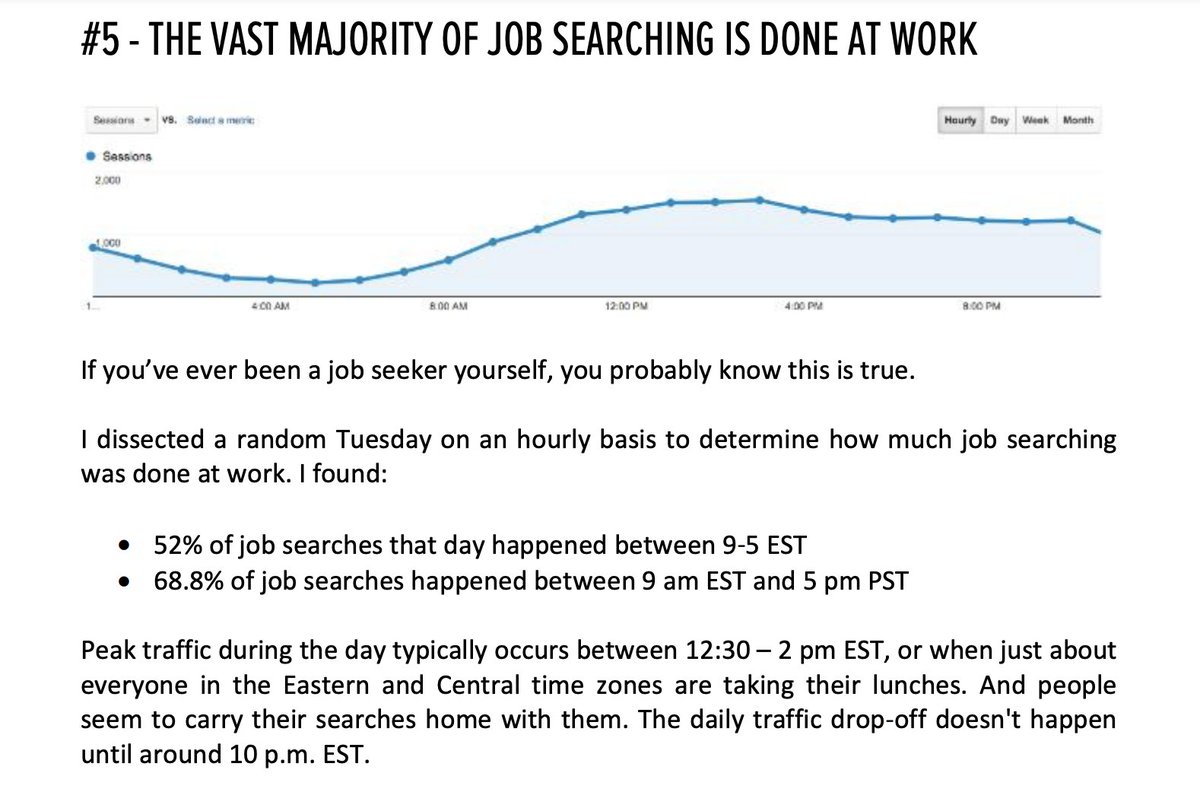
1. I'm hiring.
2. Because I've worked in/ on a jobs board in the past (that was fun @ShanePike) I found myself thinking through a lot of old lessons, stats.
This post doesn't seem to exist on the web anymore, but I referenced things I learned from it several times this week.
2. Because I've worked in/ on a jobs board in the past (that was fun @ShanePike) I found myself thinking through a lot of old lessons, stats.
This post doesn't seem to exist on the web anymore, but I referenced things I learned from it several times this week.
Historically (this is the stat I kept citing internally the last few weeks) the period between Thanksgiving and New Years Day is when the fewest people are in-market for a new job.
(I don't know if this will be true during COVID/ a recessionary environment - but I'll find out!)
(I don't know if this will be true during COVID/ a recessionary environment - but I'll find out!)

Most hiring managers and executives would be surprised to learn how few people search for jobs at *their* company, specifically.
With widespread WFH & hybrid working, I'd love to see how people search today and whether that has changed.
With widespread WFH & hybrid working, I'd love to see how people search today and whether that has changed.

Most people job search during working hours.
Read into that what you will; but I've theorized that most people who are organically searching for jobs are intentionally leaving something.
Separating FROM, not proactively joining TO if you will.
Read into that what you will; but I've theorized that most people who are organically searching for jobs are intentionally leaving something.
Separating FROM, not proactively joining TO if you will.

• • •
Missing some Tweet in this thread? You can try to
force a refresh








